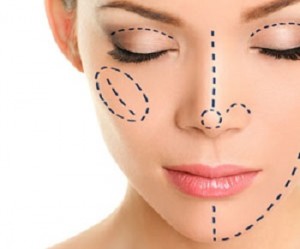
More evidence that low-calorie sweeteners are bad for your health
Studies show that artificial sweeteners can raise the risk of hypertension, metabolic syndrome, type 2 diabetes and heart disease, including stroke.

If you are a woman the question of what is beautiful – and more specifically whether you are beautiful – is always a troubling one.
It’s a common, even historic, concern. But today it is given huge energy as our media horizons have expanded. Now women don’t just have to contend with ‘beauty’ magazines but with 24/7 TV and internet that also perpetuates the ideas that there is something wrong with the way we look and there is a standard of beauty to which all must conform.
It was interesting, then, to come across the report Beauty Demands‘ – a mega-collaboration of cultural theorists, historians, lawyers, doctors, philosophers, sociologists, and psychologists, medical and nurse practitioners, artists, and journalists who are part of by the Beauty Demands Network at Birmingham University.
The paper, released over the summer, looks at a broad range of beauty practices from daily routines, such as the application of make-up or the removal of body hair, to increasingly popular and often extreme practices, such as cosmetic surgery.
It uses a broad brush to paint a picture of psychological concerns – such as perceptions of self and choice and how they influence women’s actions – as well as the role of regulation and governance in protecting users of beauty products and procedures.
This year’s look
Even though we treat them lightly, these are issues with consequences. These days, as if trying on a new face or news breasts was like buying new pair of shoes, cosmetic surgery has seasonal trends, and surgeon-punters are being called upon to predict this year’s key looks.
Some opt for surgery because they want to boost their self-esteem. But while people often report being happy with whatever body part they have modified, the jury is out on whether plastic surgery boosts their self-esteem, quality of life, self-confidence and relationships over the long term.
This is especially true of those vulnerable people who have unrealistic expectations or who have a history of depression and anxiety.
When things go wrong
That, of course, is when things go right. What happens when a procedure is botched – and what about unintended, or generally hidden consequences?
The media is awash with articles that show the dangers of cosmetic procedures, from bursting breast implants to botox treatments that permanently paralyse facial muscles.
Also, as we are constantly saying on our site, the body is a ‘whole’ system – even the bits you don’t like. Just like any ecosystem, changing one thing can trigger unintended consequences elsewhere.
For instance, a tummy tuck can make your thighs look out of proportion. Plumped-up lips can change the balance of features on your face making your nose or eyes seem out of proportion.
One recent study found that fat liposuctioned from the thighs can return – with a vengeance – to other areas of the body, especially the upper abdomen.
Normal?
The sales pitch for these procedures is poorly regulated and too often focuses on perceived benefits, without looking at such risks.
According to the report, women don’t ask many questions because of the promise that the product or procedure will make them more ‘normal’ (as defined by external and commercial sources).
Of all their findings, the discussion on what is normal has particular resonance. Perceptions of a ‘normal’ body, particularly for women, are changing fast. As we normalise unrealistic images of women, more and more of us strive – and fail – to fit within those lines. Yet this notion of what is normal is absolutely subjective and trying to fit into and maintain it is a cause of untold misery for many.
A soft subject?
Because we think of beauty as a ‘soft’ subject we don’t subject it to regulation or legislation in the way that we might ‘hard’ subjects, such as racism.
Yet perceptions of beauty are a type of profiling, and a type of discrimination. They can undermine self-esteem, make consumers more vulnerable to the hard sell of extreme cosmetic procedures, and deeply affect women’s lives and sometimes even their progress through the job market.
We’ve tackled these subjects before on our site; encouraging women to understand, for instance, that skin changes throughout the day – never mind throughout your whole life and and helping women to understand that beauty begins within – for instance with diet and nutrition and with lowering stress, and better sleep..
We’ve tackled what we call the beauty monoculture that insists that all women conform to a random ideal.
It’s time so-called beauty brand took up the challenge to help women feel better about who they are rather stirring up dissatisfaction in the name of sales.
Who will be first?
Pat Thomas, Editor

Please subscribe me to your newsletter mailing list. I have read the
privacy statement